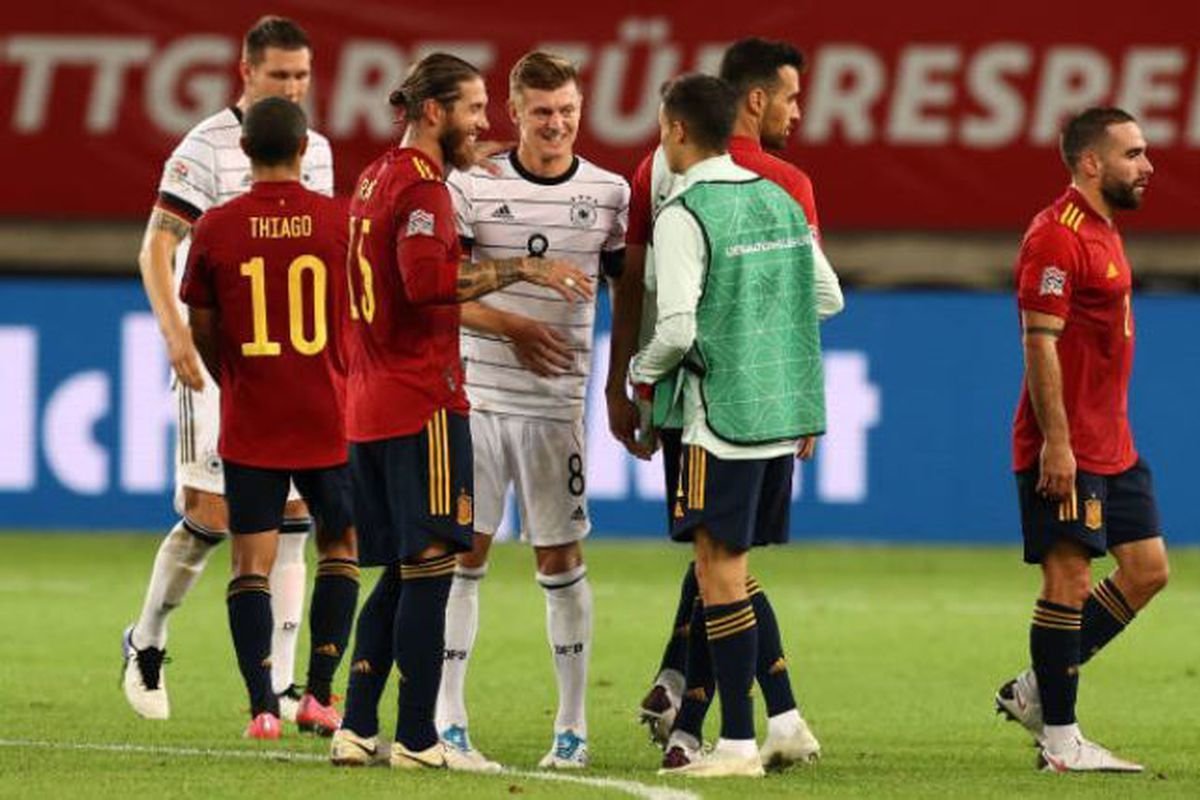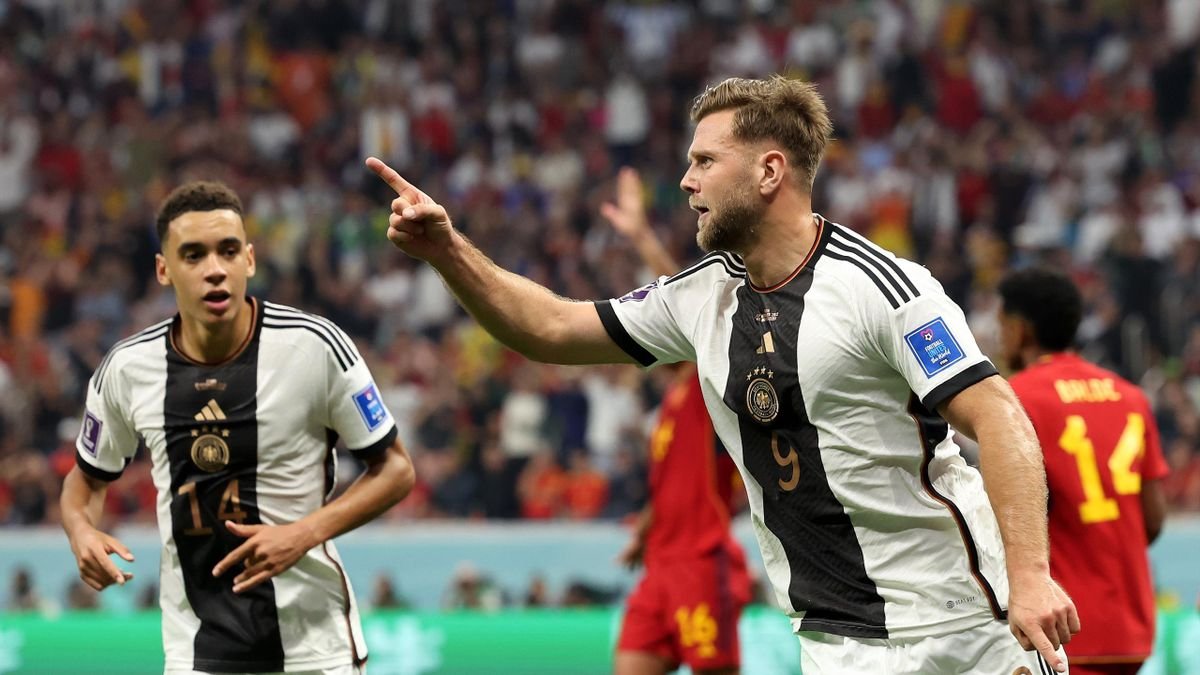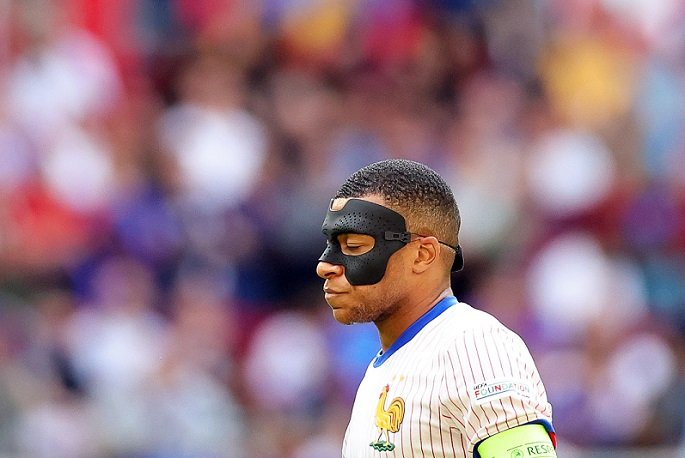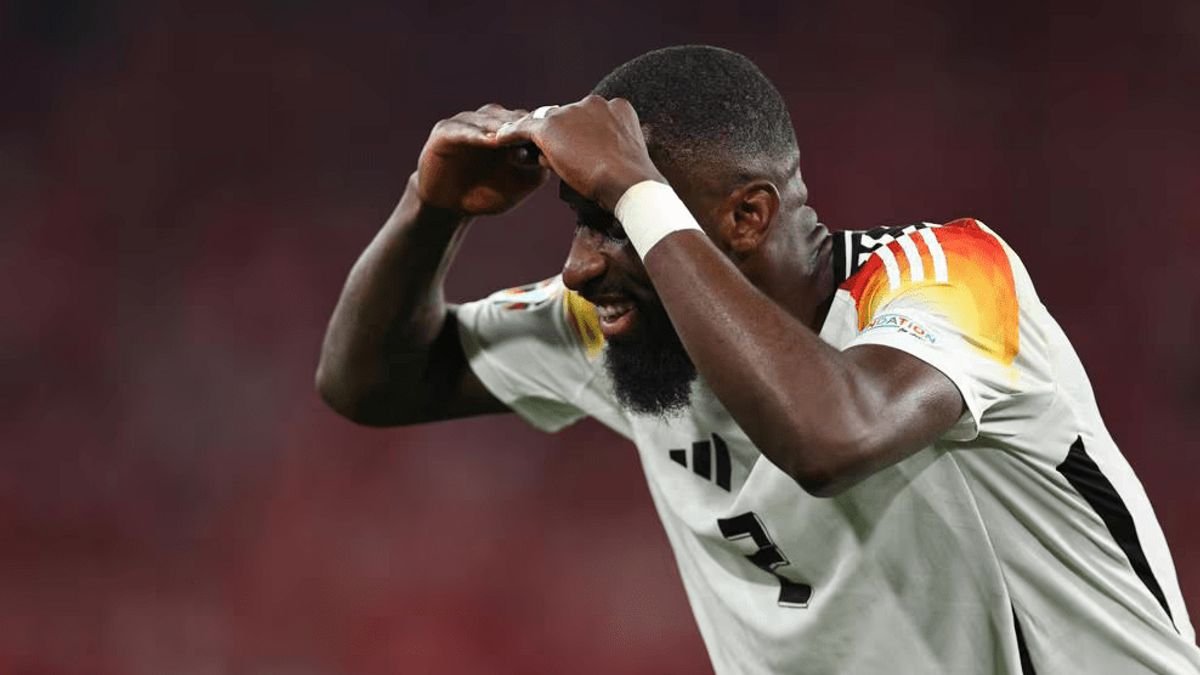As the Euro 2024 tournament reaches its crescendo, all eyes are fixed on the highly anticipated quarterfinal clash between Germany vs Spain. This matchup, set to take place in Stuttgart, Germany, on Friday, has football enthusiasts and pundits alike buzzing with excitement. The encounter between these two footballing powerhouses promises to be a spectacle of skill, strategy, and national pride, as both teams vie for a coveted spot in the semifinals. With Germany enjoying home advantage and Spain riding high on their perfect group stage performance, this match is poised to be a defining moment in the tournament.
Euro 2024: The Stage Set for a Clash of Titans

The buildup to this quarterfinal has been nothing short of dramatic, with former German goalkeeper Jens Lehmann’s controversial comments about Spain’s team of kids adding fuel to an already blazing fire of anticipation. As both teams prepare for what could be the most crucial 90 minutes of their Euro 2024 campaign, let’s delve into the factors that make this match a must-watch event.
The Home Advantage: Germany’s 12th Man
Germany, as the host nation, enters this quarterfinal with the invaluable support of their home crowd. The impact of playing on familiar turf cannot be overstated in international tournaments:
- Crowd Support: The roar of thousands of German fans in Stuttgart is expected to create an electrifying atmosphere, potentially boosting the team’s morale and performance.
- Familiarity: German players’ familiarity with the stadium and playing conditions could provide a subtle yet significant edge.
- Pressure and Expectations: While home advantage is generally positive, it also brings added pressure to perform, which the German team will need to manage effectively.
Spain’s Perfect Start: A Team on Fire
Spain’s journey through the group stage has been nothing short of spectacular:
| Opponent | Result | Goals Scored | Goals Conceded |
|---|---|---|---|
| Croatia | Win | 2 | 0 |
| Italy | Win | 3 | 0 |
| Albania | Win | 1 | 0 |
This flawless performance has established Spain as a formidable force in the tournament, showcasing:
- Offensive prowess with 6 goals scored
- Defensive solidity, conceding no goals
- Tactical flexibility and depth in their squad
The Battle of Generations: Experience vs. Youth
Lehmann’s comments have highlighted an intriguing aspect of this matchup: the contrast between Germany’s experienced squad and Spain’s youthful talents.
- Germany’s Veterans: Players like Thomas Müller and İlkay Gündoğan bring years of international experience.
- Spain’s Rising Stars: The emergence of players like Lamine Yamal (16) and Nico Williams (21) represents Spain’s investment in youth.
This generational clash adds an extra layer of intrigue to the tactical and physical battle on the field.
Tactical Battleground: Analyzing Germany vs Spain’s Playstyles

The quarterfinal between Germany vs Spain is not just a clash of teams, but a confrontation of distinct footballing philosophies and tactical approaches. Both nations have rich footballing traditions, but their current iterations under their respective managers offer an intriguing contrast in styles.
Germany’s Pragmatic Evolution
Under the guidance of Julian Nagelsmann, Germany has been undergoing a tactical renaissance:
- Flexible Formation: Germany has shown versatility, switching between a 4-2-3-1 and a 3-4-2-1 formation depending on the opponent and game situation.
- High Press: The German team employs an aggressive high-pressing system, aiming to win the ball back quickly in the opponent’s half.
- Quick Transitions: Emphasis on rapid counter-attacks, utilizing the pace and skill of forwards like Leroy Sané and Kai Havertz.
Key tactical elements:
- Utilization of wing-backs for width and overlapping runs
- Central midfielders acting as deep-lying playmakers
- Emphasis on set-piece efficiency
Spain’s Tiki-Taka Evolution
Spain, under Luis de la Fuente, has maintained elements of their famous tiki-taka style while incorporating more direct play:
- Possession-based Approach: Spain still prioritizes ball retention, but with a more vertical and purposeful intent.
- Fluid Positioning: Players are encouraged to interchange positions, creating confusion for opposing defenses.
- High Defensive Line: Spain often pushes their defensive line up, compressing the playing area and facilitating their pressing game.
Notable tactical features:
- Use of false nine or mobile striker to create space
- Inverted wingers cutting inside to overload central areas
- Quick, short passing combinations to break through defensive lines
The Midfield Battle: Control vs. Dynamism
The heart of this tactical clash will likely be in the midfield:
- Germany’s Approach: Likely to rely on the dynamism and box-to-box abilities of players like Joshua Kimmich and Leon Goretzka.
- Spain’s Strategy: Expected to field technically gifted midfielders like Pedri and Rodri to control the tempo and dictate play.
This midfield confrontation could be the key to determining which team gains the upper hand in possession and territorial control.
Defensive Strategies: High Line vs. Compactness
Both teams have shown different defensive approaches:
- Germany’s High Risk, High Reward:
- Aggressive high line to compress play
- Risk of being exposed to through balls and pace
- Reliance on goalkeeper Manuel Neuer’s sweeper-keeper abilities
- Spain’s Collective Pressing:
- Coordinated team press to force turnovers
- Compact defensive shape when out of possession
- Quick transitions from defense to attack
The Role of Substitutes and In-Game Management
Given the intensity of a quarterfinal and the depth of both squads, the impact of substitutions could be crucial:
- Germany’s bench strength in attacking positions (e.g., Jamal Musiala, Florian Wirtz)
- Spain’s ability to introduce game-changing talents like Ansu Fati or Dani Olmo
The managers’ ability to read the game and make timely tactical adjustments could prove decisive in what promises to be a closely contested match.
Key Players to Watch: Stars Set to Shine in the Showdown

As Germany vs Spain prepare to lock horns in this crucial quarterfinal, several players from both sides are expected to play pivotal roles. Their individual performances could very well determine the outcome of this high-stakes encounter.
Germany’s Game Changers
Leroy Sané: The Speedster
Leroy Sané has been a standout performer for Germany in recent years:
- Speed and Dribbling: His ability to beat defenders one-on-one creates numerous attacking opportunities.
- Versatility: Comfortable playing on either wing or in a more central role.
- Goal Threat: Possesses a powerful shot and the ability to score from distance.
Sané’s form and confidence will be crucial for Germany’s attacking prowess against Spain’s solid defense.
Joshua Kimmich: The Midfield Maestro
Kimmich’s importance to the German team cannot be overstated:
- Passing Range: Ability to dictate play from deep and spray long passes to switch play.
- Defensive Contribution: Excellent in breaking up opposition attacks and initiating counter-attacks.
- Set-Piece Specialist: Provides a significant threat from corners and free-kicks.
His battle with Spain’s midfield could be a defining factor in the match’s outcome.
Manuel Neuer: The Wall
Despite recent injuries, Neuer remains a key figure:
- Experience: Brings unparalleled big-game experience to the German backline.
- Sweeper-Keeper: His ability to play outside the box allows Germany to maintain a high defensive line.
- Leadership: Organizes the defense and provides confidence to the entire team.
Neuer’s performance could be crucial in nullifying Spain’s attacking threats.
Spain’s Key Performers
Pedri: The Midfield Prodigy
At just 21, Pedri has already established himself as a linchpin in Spain’s midfield:
- Vision: Exceptional ability to read the game and create chances.
- Ball Control: Excellent in tight spaces, crucial for Spain’s possession-based play.
- Work Rate: Contributes both offensively and defensively, covering large areas of the pitch.
Pedri’s battle with Germany’s midfielders could be a highlight of the match.
Álvaro Morata: The Goal Poacher
Morata leads Spain’s attacking line:
- Positioning: Excellent movement in the box to find scoring opportunities.
- Aerial Threat: Provides a target for crosses and set-pieces.
- Link-up Play: Ability to hold up the ball and bring teammates into play.
His performance against Germany’s defense could be crucial for Spain’s chances.
Unai Simón: The Last Line of Defense
Spain’s goalkeeper has been in excellent form:
- Shot-Stopping: Quick reflexes and good positioning have kept clean sheets.
- Distribution: Comfortable with the ball at his feet, crucial for Spain’s build-up play.
- Command of Area: Strong presence in dealing with crosses and set-pieces.
Simón’s duel with German attackers could be a key battle within the war.
Head-to-Head Battles to Watch
- Leroy Sané vs. Jordi Alba: Speed vs. Experience on the flank.
- Joshua Kimmich vs. Pedri: A midfield chess match of tactics and technique.
- Álvaro Morata vs. Antonio Rüdiger: Physical battle between striker and defender.
These individual duels across the pitch will play a significant role in shaping the overall narrative of the match.
Historical Context: Recalling Past Encounters and Their Significance

The rivalry between Germany vs Spain is steeped in history, with numerous memorable encounters that have shaped the footballing landscape of Europe. As these two giants prepare to face off once again, it’s worth revisiting some of their most significant past meetings and understanding how they might influence the upcoming clash.
The Early Years: Establishing Dominance
1966-1988: Germany’s Era of Supremacy
During this period, Germany held a clear upper hand in their encounters with Spain:
- 1966 World Cup: Germany defeated Spain 2-1 in the group stage.
- 1976 European Championship: A 2-0 victory for Germany in the quarterfinals.
- 1982 World Cup: Germany emerged victorious with a 2-1 win in the second group stage.
These results established Germany as a dominant force in international football and set the tone for future encounters.
Key Takeaways from This Era:
- Germany’s physical strength and tactical discipline often overpowered Spain’s technical play.
- These victories contributed to Germany’s reputation as a tournament team.
The Turning Point: Spain’s Rise to Power
Euro 2008: A New Spanish Era Begins
The Euro 2008 final marked a significant shift in the balance of power:
- Result: Spain 1-0 Germany
- Significance: This victory ended Spain’s 44-year trophy drought in major tournaments.
- Impact: Launched Spain’s golden era, leading to World Cup 2010 and Euro 2012 victories.
2010 World Cup: Confirming the Shift
Spain’s 1-0 victory over Germany in the semifinal further cemented their status:
- Demonstrated Spain’s ability to control games against top opposition.
- Highlighted the effectiveness of their tiki-taka style on the biggest stage.
Recent Encounters: A Balanced Rivalry
Nations League 2020: Germany’s Resurgence
The 6-0 victory for Spain in the UEFA Nations League was a shock result:
- Exposed vulnerabilities in the German setup.
- Prompted a period of introspection and rebuilding in German football.
Friendly Matches and Competitive Fixtures
Recent years have seen a more balanced head-to-head record:
| Year | Competition | Result |
|---|---|---|
| 2018 | Friendly | 1-1 |
| 2014 | Friendly | 1-0 (Germany) |
| 2012 | Euro 2012 | 0-0 (Spain won on penalties) |
Lessons from History
- Tactical Evolution: Both teams have adapted their styles over the years, moving away from stereotypical approaches.
- Psychological Factor: Past results can play a role in team confidence and approach.
- Individual Brilliance: Many past encounters were decided by moments of individual skill, highlighting the importance of star players.
Impact on the Current Matchup
- Germany’s Home Advantage: Echoes their strong performances in past home tournaments.
- Spain’s Recent Dominance: Could provide a psychological edge, especially for younger players.
- Pressure of History: Both teams carry the weight of their footballing legacy into this quarterfinal.
Understanding this rich historical context adds depth to the upcoming clash, as both teams not only fight for a semifinal spot but also for national pride and historical bragging rights.
Impact on Euro 2024: The Implications of the Germany vs Spain Result

The quarterfinal clash between Germany vs Spain is more than just a single match in the tournament bracket. Its outcome will have far-reaching implications for the remainder of Euro 2024 and potentially for the future of both national teams. Let’s explore the various ways this result could shape the tournament and beyond.
Tournament Dynamics: Shifting the Balance of Power
Path to the Final
The winner of this match will face a clearer route to the final:
- Semifinal Opponent: Likely to face a theoretically weaker opponent from the other quarterfinal.
- Momentum: Winning against a top team can provide a significant psychological boost for the later stages.
Impact on Other Teams
The result will have a ripple effect on other contenders:
- Perceived Favorites: The victor may be immediately installed as the new tournament favorite.
- Tactical Adjustments: Other teams will study the winning strategy, potentially influencing their own approaches.
National Team Trajectories
For Germany:
- Home Success:
- A win would validate their status as hosts and boost national morale.
- Elimination could lead to questions about the team’s ability to perform under pressure.
- Generational Shift:
- Success might prolong the careers of veteran players.
- Defeat could accelerate the integration of younger talents.
- Managerial Impact:
- Julian Nagelsmann’s position and long-term plans could be influenced by the result.
For Spain:
- Youth Development:
- Success would vindicate their trust in young talents like Pedri and Gavi.
- Failure might lead to a reevaluation of the balance between youth and experience.
- Tactical Identity:
- A win could cement Spain’s evolved playing style as a successful model.
- Defeat might prompt a deeper tactical overhaul.
- International Standing:
- Victory would reaffirm Spain’s status as a footballing superpower.
- Elimination could raise questions about their competitiveness at the highest level.
Media and Public Reaction
The aftermath of the match will likely see intense media scrutiny:
- Winner: Expect widespread praise and increased expectations for the remainder of the tournament.
- Loser: Likely to face criticism and calls for changes in personnel or tactics.
Public reaction in both countries will be significant:
- In Germany, as hosts, the result will be particularly impactful on national mood.
- In Spain, the performance of their young squad will be closely analyzed.
Economic and Commercial Impact
The result could have broader implications:
- Sponsorship and Marketing:
- The winning team may see increased commercial opportunities.
- Player valuations could be affected, especially for standout performers.
- Tourism and Local Economy:
- Germany’s continued presence in the tournament as hosts would likely boost local economies in host cities.
- Television Ratings:
- The winner’s subsequent matches are likely to draw higher viewership.
Long-term Football Development
The match outcome could influence football development strategies:
- Youth Academies:
- Success of young players might lead to increased investment in youth development.
- Playing Style:
- The tactical approach of the victorious team could become a model for clubs and national teams.
- International Competitions:
- The result might impact how teams approach major tournaments in the future, particularly in terms of squad selection and preparation.
Global Football Landscape
On a broader scale, this match could affect the global football hierarchy:
- Reinforce or challenge the perceived dominance of certain footballing nations.
- Influence the approach of other countries in international competitions.
UEFA and Tournament Format
The quality and drama of this early knockout stage match might impact future tournament planning:
- Could influence discussions on tournament formats and seeding processes.
- Might affect debates on the frequency and structure of international competitions.
In conclusion, the Germany vs Spain quarterfinal is not just a crucial match in Euro 2024, but a pivotal moment that could shape the landscapeof European football for years to come. The implications of this matchup go beyond just a spot in the semifinals, with ramifications on team trajectories, national pride, media and public perception, economic factors, football development strategies, and the global football landscape as a whole. As the two footballing powerhouses prepare to renew their storied rivalry on the pitch, the world watches with bated breath to see how this clash of titans will unfold and what its lasting impact will be.
Video
<div class="youtubeVideo

“>
Conclusion
The Germany vs Spain quarterfinal at Euro 2024 is more than just a game; it’s a culmination of history, tactics, key players, and future implications. The rich legacy of past encounters adds layers of significance to this matchup, shaping how both teams approach the game and driving their desire for victory.
As the tactical battleground awaits, with stars ready to shine and historical context casting a long shadow, the outcome of this clash will reverberate far beyond the final whistle. From shifting the balance of power in the tournament to influencing national team trajectories, media reactions, commercial impacts, football development strategies, and even the global football landscape, the stakes are high for both Germany vs Spain.
Euro 2024 stands at a crossroads, where the result of this quarterfinal could set the tone for the remainder of the competition and define the narrative of football in Europe for years to come. So as these two footballing giants take to the field once again, one thing is certain – the world will be watching, eagerly anticipating the drama, skill, and history that will unfold in this epic showdown.

